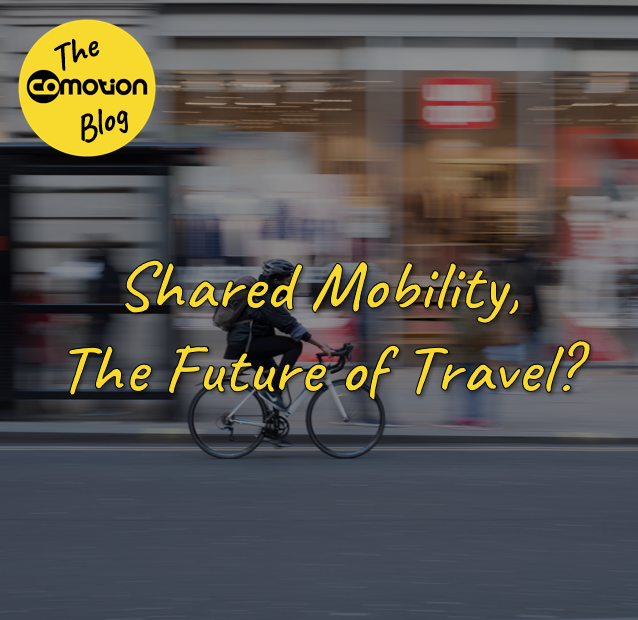
Shared Mobility,
The Future of Travel?
In the past number of weeks, we have seen numerous reports regarding our climate and how the deadline for change is becoming increasingly close to expiring. We are all aware of the negative impact our travel choices are having on the environment, but what can we do about it?
It was recently announced that Dublin City Council are creating a team to explore shared mobility and “mobility hubs” for communities and the general public. This is a huge leap in the right direction as we are now seeing councils considering the travel needs of their citizens and investing in services to meet these needs.
Owning a car does not just cost you the price of the car, there’s tax, insurance, NCT, fuel, parking charges, just to name a few. There are also the non-financial factors we don’t consider like the cost of our time sitting in traffic, pollution, and congestion. All of these factors impact our personal lives and the wider community. The average car spends 95% of its life span parked up, which means we pay for our cars to sit in driveways or car parks for 159 hours a week or 8,322 out of 8,760 hours per year.
So, the question is, “does personal car ownership make financial sense?”
For people in rural communities where bus stops are 5km apart, personal vehicle ownership is a necessity as walking to and from a bus stop in the depths of winter in Ireland on roads that are poorly lit is a health and safety issue.
However, for people living in cities or towns, who just use their car once a week to do “the big shop” or the odd trip to IKEA, the cost of running a car (according to the AA approx. €10,691 per annum) is an unnecessary expense which adds to their already increasing living costs.
The pandemic has also proven that people can work effectively from home and do not need to be in the office 5 days a week. For the majority of us our commute to and from work is when we will spend the most hours in our cars. But, if more companies adapted a remote working policy, suddenly those daily commutes could become weekly or biweekly commutes and the need for personal cars becomes redundant and the use of a shared vehicle becomes a far more viable option.
Shared mobility needs the engagement from aspects of society to participate for it to be a success. For instance, if you use your car to commute to work 2 days a week, but your company provided you with access to a shared vehicle for those 2 days, your personal car now becomes a luxury that you may not need. If your local council provided a share vehicle for you to transport your groceries from the supermarket, suddenly you don’t need your personal car for that journey either.
A poll recently carried out by TheJournal.ie discovered that majority of its readers do not feel comfortable using public transport due to the looming presence of Covid-19. For those people, shared mobility may be their best solution as it can be multi modal e.g. bikes, cars, ebikes.
Shared mobility is multi-generational, it can help combat social exclusion in all walks of life and open the doors for people who cannot afford a personal car and get them on the road to success. However, its success lies in the hands of the general public who need to shift their mindset and realise the implications our transport decisions are having on the environment and the knock-on effect they will have for future generations.
Is the move to towards shared mobility and away from personal vehicle ownership going to solve world hunger? No, it’s won’t. However, will it drastically alter the way we travel and our impacts on the environment? Yes, it will, but it will need to be encouraged by all members of society.

